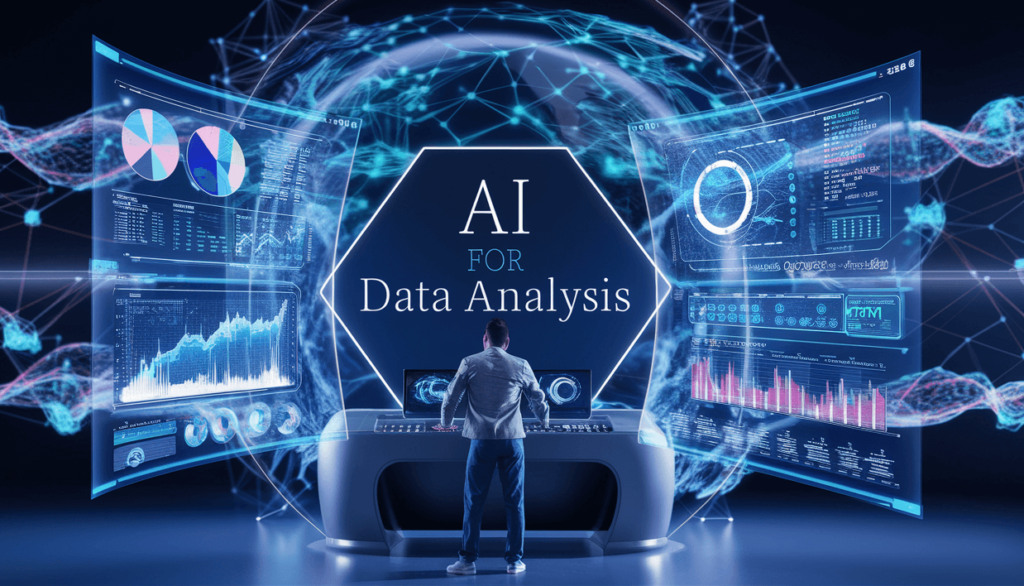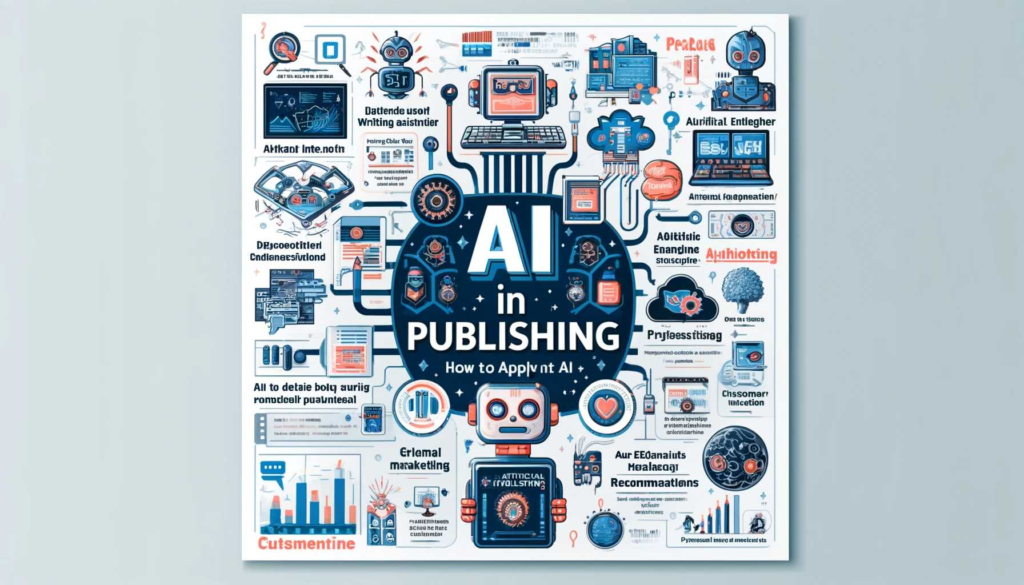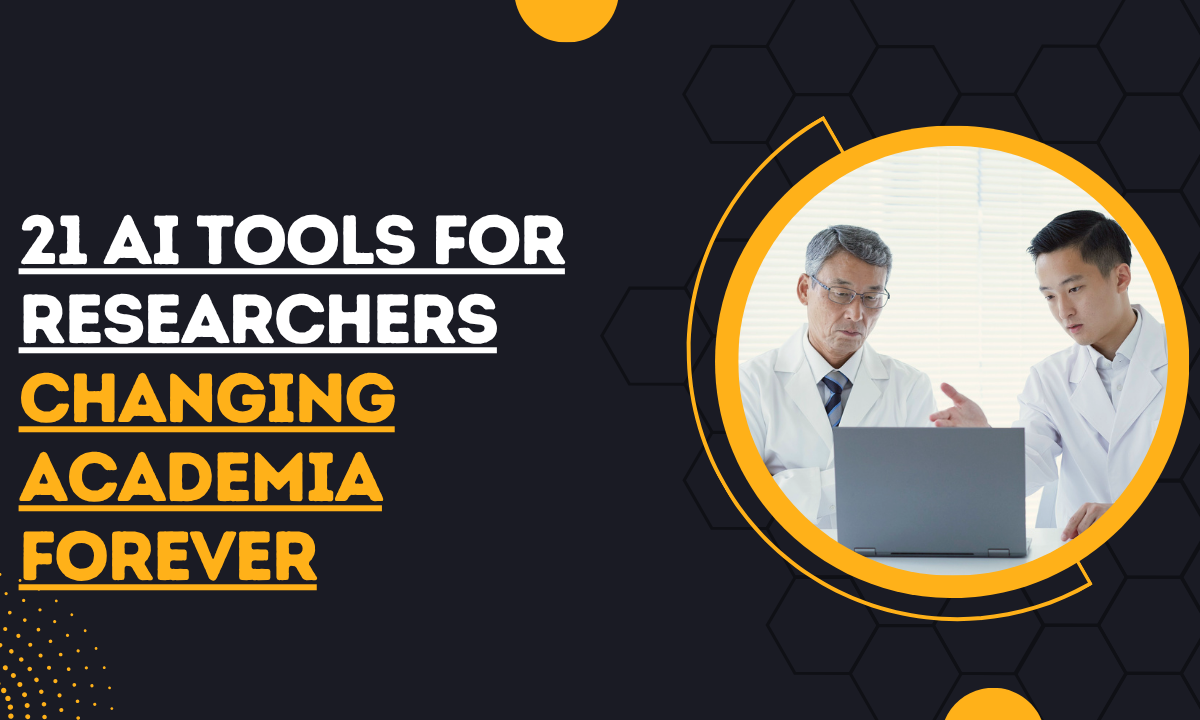21 AI Tools for Researchers Changing Academia Forever
Have you ever wondered how much time you spend sifting through papers, formatting citations, or crunching data? However, fortunately, today AI tools for researchers are transforming how academic work gets done.
These tools are designed to streamline those tedious tasks while enhancing your insights.
According to a report by the Upwork Research Institute, 40% of employees using AI tools have experienced a 40% boost in productivity, driven by familiarity and experimentation with these technologies.
The truth is they don’t replace your expertise—they amplify it.
In this article, we’ll explore the most impactful AI tools across six key areas.
You’ll see how they help you work smarter, collaborate effectively, and focus on what truly matters: generating knowledge and advancing your field.
AI Tools for Research & Writing
Writing research papers is often exhausting. AI tools for researchers make drafting and editing simpler.
They help organize ideas and clarify arguments.
Want faster results?
These platforms reduce repetitive work. You can focus on analysis and creativity.
In the end, your manuscripts feel polished, professional, and ready for submission. Stress less.
| Tool Name | Benefits | Use Cases |
|---|---|---|
| ChatGPT Deep Research | An AI agent that autonomously browses the web to generate detailed, cited reports on specified topics. Ideal for literature reviews, hypothesis generation, and data synthesis. | – Conducting comprehensive literature reviews.- Generating hypotheses based on existing research.- Synthesizing data from multiple sources. |
| NotebookLM | A mobile-first AI research assistant that integrates with PDFs, Word files, and web pages to create interactive notebooks. Simplifies data analysis and presents information interactively. | – Creating interactive research notebooks.- Summarizing and analyzing research papers.- Organizing notes and references. |
| Wordvice AI | A comprehensive academic writing assistant offering grammar and spelling checks, style enhancements, plagiarism detection, and citation formatting. Useful for preparing manuscripts for publication. | – Proofreading and editing academic papers.- Formatting citations and references.- Enhancing writing style and clarity. |
| Jenni AI | An AI academic writing assistant that helps create essays, papers, and citations with ease. Offers real-time writing assistance and organization tools. | – Writing and organizing research papers.- Generating citations and bibliographies.- Enhancing writing flow and coherence. |
| Scholarcy | An AI summarizer that condenses articles into digestible summaries and creates interactive flashcards. Helps in quickly understanding complex research papers. | – Summarizing lengthy research articles.- Creating flashcards for study purposes.- Identifying key findings in research papers. |
| Writefull | An AI tool that assists with writing, paraphrasing, copyediting, and more, tailored for academic contexts. Provides real-time language feedback and suggestions. | – Paraphrasing and rephrasing academic content.- Copyediting for grammar and style.- Generating abstracts and titles. |
Literature Discovery & Management

Source: TomorrwoDesk
Finding relevant studies is tedious.
Summarizing them?
Even harder.
There are some AI tools for researchers that highlight literature discovery and visualize networks. They organize references and save hours of searching.
Curious how it works?
By reducing redundant tasks, these tools let you focus on analyzing content and connecting ideas.
Research just became smarter.
| Tool Name | Benefits | Use Cases |
|---|---|---|
| STORM | A research prototype that supports interactive knowledge curation and generates Wikipedia-like reports on topics. Assists with topic research, outline creation, and multi-perspective question formulation. | – Generating structured outlines for research topics.- Creating Wikipedia-style articles for knowledge sharing.- Formulating multi-perspective questions for research. |
| IntellectSeeker | A personalized literature management system that uses a probabilistic model and large language model to enhance literature searches. Offers intelligent article recommendations and presents search results through concise summaries and visualizations. | – Conducting personalized literature searches.- Receiving intelligent article recommendations.- Visualizing search results through summaries and word clouds. |
| PubTator 3.0 | A literature resource for biomedical research, offering semantic and relation searches for key concepts like proteins, genetic variants, diseases, and chemicals. Provides advanced search capabilities and enables large-scale analyses. | – Conducting semantic searches in biomedical literature.- Identifying relations between key concepts.- Analyzing large-scale biomedical datasets. |
| Connected Papers | A visual tool to explore and discover papers relevant to a specific research topic. Helps in finding and exploring papers based on a single starting point. | – Exploring related research papers.- Visualizing the relationship between different papers.- Identifying key papers in a research area. |
| Research Rabbit | A literature discovery and network mapping tool that helps researchers find and visualize related works. Assists in building a network of related research papers. | – Discovering related research papers.- Visualizing the network of research topics.- Building a comprehensive literature map. |
Data Analysis & Coding

Source: Unichrone
Big datasets can be intimidating. Cleaning, organizing, and coding takes ages.
But midway through, we have AI tools for researchers automate data analysis and debug scripts.
They help build predictive models efficiently.
Want accuracy?
These tools reduce errors and accelerate insights.
Researchers can then focus on interpretation, discovering patterns, and making data-driven decisions confidently.
| Tool Name | Benefits | Use Cases |
|---|---|---|
| Claude Sonnet 4.5 | An advanced AI model known for its capabilities in coding, reasoning, and mathematics. It can autonomously perform tasks for over 30 hours, significantly surpassing previous models. | – Writing and debugging code.- Performing data analysis tasks.- Automating repetitive coding tasks. |
| Microsoft 365 Copilot | AI-powered tools integrated into Microsoft 365 applications to assist with data analysis and report generation. Features include “Agent Mode” for generating and refining content using natural language prompts. | – Analyzing data in Excel.- Generating reports in Word.- Creating presentations in PowerPoint. |
| Elicit.org | A tool that uses AI to extract key data from research papers for evidence-based answers. Assists in synthesizing information from multiple sources. | – Extracting key data from research papers.- Synthesizing information for evidence-based answers.- Organizing findings for systematic reviews. |
| DataRobot | An automated machine learning platform for building and deploying predictive models. Simplifies the process of creating machine learning models. | – Building predictive models.- Deploying machine learning solutions.- Analyzing large datasets. |
Collaboration and Publishing

Source: JunkyBooks
Coordinating with co-authors is tricky. Integrating edits takes forever.
Formatting manuscripts?
A nightmare.
But then some AI tools for researchers simplify collaboration by automating tedious tasks.
They manage citations and streamline publishing workflows.
Result?
Teams focus on content, not formatting. Submissions are smoother, faster, and error-free.
Ready to collaborate smarter? Read on.
| Tool Name | Benefits | Use Cases |
|---|---|---|
| Typeset.io | A platform that provides predefined manuscript templates and automated formatting tools to help researchers meet journal guidelines. Also features a citation management system and supports various styles. | – Formatting manuscripts according to journal guidelines.- Managing citations and references.- Preparing manuscripts for submission. |
| PyZoBot | An AI-driven platform that integrates Zotero reference management with OpenAI’s large language models. Streamlines knowledge extraction and synthesis from extensive scientific literature databases. | – Managing references using Zotero.- Extracting and synthesizing knowledge from literature.- Organizing research materials efficiently. |
| Overleaf + AI | A collaborative LaTeX editor that now includes AI-assisted formatting and equation help. Facilitates real-time collaboration and document editing. | – Writing and editing LaTeX documents collaboratively.- Formatting equations and references.- Collaborating with co-authors in real-time. |
Discovery & Synthesis
Reviewing multiple studies is overwhelming.
Comparing results? Confusing.
Tracking citations?
Time-consuming.
Yet there’s a bunch of AI tools for researchers that identify trends, gaps, and connections.
They summarize findings clearly and help spot insights fast.
Need clarity?
With these tools, researchers can make informed decisions quicker and strengthen the impact of their work.
| Tool Name | Benefits | Use Cases |
|---|---|---|
| Perplexity AI | An AI-powered research assistant that helps researchers discover new sources for literature reviews and research assignments. Simplifies data analysis and boosts productivity. | – Discovering new sources for literature reviews.- Conducting research assignments.- Analyzing data for research purposes. |
| Scite | A tool that adds citation depth by showing how a paper has been cited (supporting, contrasting, or mentioning). Aids in understanding the context of citations and enhances literature reviews. | – Analyzing citation contexts.- Enhancing literature reviews.- Understanding the impact of research papers. |
| ScholarAI | An AI-powered search and summary tool across multiple academic databases. Assists in discovering and summarizing academic content. | – Searching across multiple academic databases.- Summarizing academic content.- Discovering relevant research materials. |
Experimental & Data Visualization Tools

Source: Prime Time Promoters
Experiments generate tons of data. Visualizing it can be tricky. Cleaning datasets takes forever.
However there are AI tools for researchers that simplify analysis, create graphs, and map networks. Dashboards make patterns obvious.
Curious results?
These tools help interpret data faster, reduce errors, and share findings clearly.
Research becomes impactful, efficient, and actionable.
| Tool Name | Benefits | Use Cases |
|---|---|---|
| VOSviewer | A tool for constructing and visualizing bibliometric networks. Assists in analyzing and visualizing relationships between research topics. | – Constructing bibliometric networks.- Visualizing relationships between research topics.- Analyzing citation patterns. |
| Benchling AI | An AI-driven platform for life sciences experiments and collaboration. Facilitates data management and analysis in laboratory settings. | – Managing life sciences experiments.- Collaborating on research projects.- Analyzing experimental data. |
FAQs
What are AI tools for researchers in writing and editing, and how can they improve my manuscripts?
These tools assist in drafting, summarizing, and polishing research content. They help reduce repetitive work and improve clarity and structure.
How do literature discovery and management tools help researchers find relevant academic papers efficiently?
They simplify literature searches, organize references, and visualize research networks, saving time and highlighting important studies and trends.
Can AI tools for data analysis and coding handle large datasets and complex modeling tasks effectively?
Yes. They automate calculations, debug scripts, build predictive models, and accelerate insights, allowing researchers to focus on interpretation and results.
How do collaboration and publishing tools streamline teamwork and manuscript preparation in academia?
These tools manage co-author edits, format manuscripts, and handle citations efficiently, enabling smoother workflows and error-free submissions.
How do AI tools help in synthesizing findings and discovering new research gaps across multiple studies?
They highlight trends, identify knowledge gaps, summarize key findings, and uncover connections between studies, improving research insights and decision-making.
What role do experimental and data visualization tools play in managing lab experiments and bibliometric data?
These tools create visual dashboards, map networks, analyze results, and track experiments, making complex data easier to interpret and share.
Are AI tools for researchers changing the pace and quality of academic research significantly?
Absolutely. By automating tedious tasks and enhancing analysis, they increase productivity, improve accuracy, and allow researchers to focus on impactful work.
Related Posts
Why AI Tools for Studying Are the Student’s New Superpower
Best AI Tools for Students: Your Ultimate Guide to Smarter Studying
Top 10 AI Tools for Portfolio Managers: Boost Research & Risk Control
Autonomous AI Agents 2025: Redefining Digital Workflows
Conclusion
The landscape of academic research is evolving fast.
AI tools for researchers now handle time-consuming tasks like literature searches, data analysis, and manuscript formatting—so you can focus on interpretation, not repetition.
Think of them as intelligent co-pilots that summarize studies, visualize networks, and even identify hidden research gaps.
Researchers using AI report saving up to 30% of their time, with noticeable improvements in precision, collaboration, and productivity.
Beyond speed, these tools foster deeper insights by revealing patterns humans might miss.
In today’s world, AI tools for researchers aren’t optional—they’re essential for faster, smarter, and more impactful discovery.

